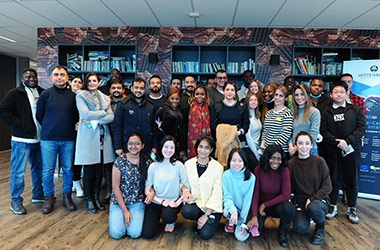Danish Economy Struggling After Cap on International Students

Could the same thing happen to the Netherlands?
Stakeholders within Denmark have raised the alarm calling for a lifting of the current cap on international students flowing into Denmark for the benefit of the economy and struggling fields such as engineering. Additionally, certain stakeholders are asking the government to allow more students to work after graduation to cope with dire labour shortages. The shortage arose after spending on foreign students was severely limited in 2021 and English-language programmes were reduced by 25%, leading to the closure of approximately 3,900 university places for students. Such an impact on the labour market of the Netherlands’ EU neighbour being observable so quickly after the implementation of these measures is arguably concerning in light of the intention of the Dutch Tweede Kamer (House of Representatives) to limit the influx of international students. The problems arising within the Danish economy may serve as a case model for the Netherlands.
Specifically, the Danish Engineering Association (IDA) is imploring the Danish government to allow more students to work after graduation so that Denmark can maximise the benefit of internationals to the domestic economy. Chairman of the IDA, Aske Nydam Guldberg has highlighted the crucial role of international students on Danish society. He says that in the period between 2007 and 2020, international students added 26 billion kroner (3.49 billion euro) to the Danish economy. This number, based on data compiled for the IDA by Damvad Analytics (DA), comes even after subtracting expenses for student loans, education and health, and those who have returned home.
‘Dear politicians: drop the ceiling,’ Guldberg pleads
To summarise the ongoing political situation in the Netherlands: various parties within the Tweede Kamer have demanded a new policy limiting international students be drafted by spring 2023 for implementation by summer 2023 and have moved to ban international recruitment until then. Minister of Education, Culture and Science Robbert Dijkgraaf has stated he would prefer to compile a new policy for international students only after his research into their impact on the economy and public resources is completed. This is so that the Dutch parliament can craft an informed policy which is substantiated with factual information, such as that compiled by DA.
Based on DA's analysis, public spending on international students who return home after their studies is ‘offset’ by those who remain in the country to perform labour and contribute to the economy via personal spending. Guldberg, therefore, finds claims by those in the Danish government that international students have been draining public resources to be inconsistent with the numbers revealed in DA's analysis. He predicts that in Denmark, there will be a shortage of graduates to the tune of 13,000 by the end of the decade. According to him, Danish companies need international students for their skills and labour, and he considers them as having a key role in the green and digital transformation to make Danish society more sustainable.
Considering DA's figures and the impact that limiting study migrants has had on the Danish economy, Wittenborg University of Applied Sciences implores the Dutch government to re-evaluate plans to cap international students. Based on the Danish model, international students and graduates – even those who do not stick around after completing their studies – play a vital role in the domestic economy. Danish cabinet members claiming that foreign students were a drain on public resources were demonstrably incorrect, and this miscalculation and simplistic policymaking on their part has negatively impacted the Danish economy, with implications for Danish business and society. As such, Wittenborg hopes the Tweede Kamer will suspend any actions to limit the influx of study migrants pending the outcome of Minister Dijkgraaf's research into the impact of international students on the Dutch economy and society.
WUP 12/12/2022
by Olivia Nelson
©WUAS Press